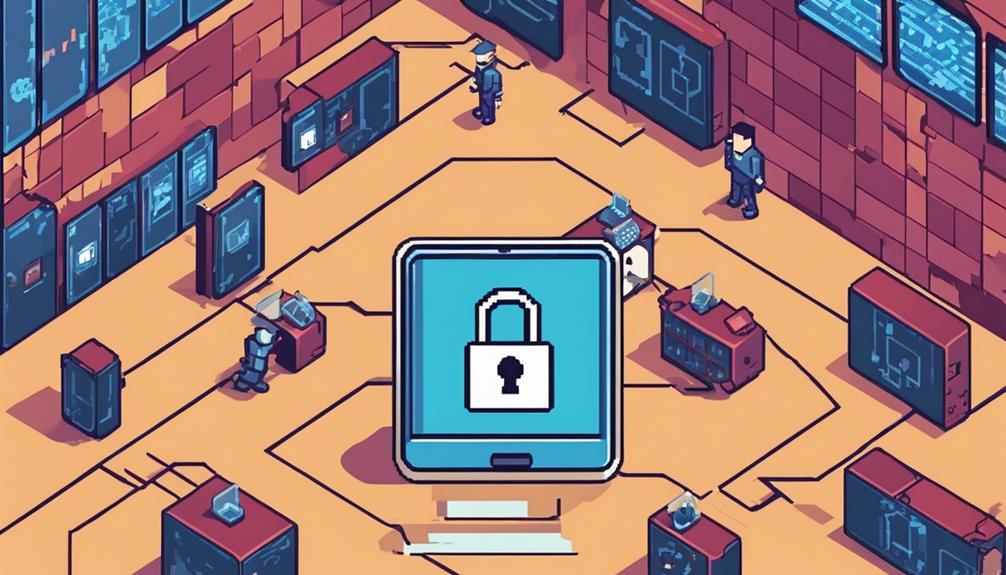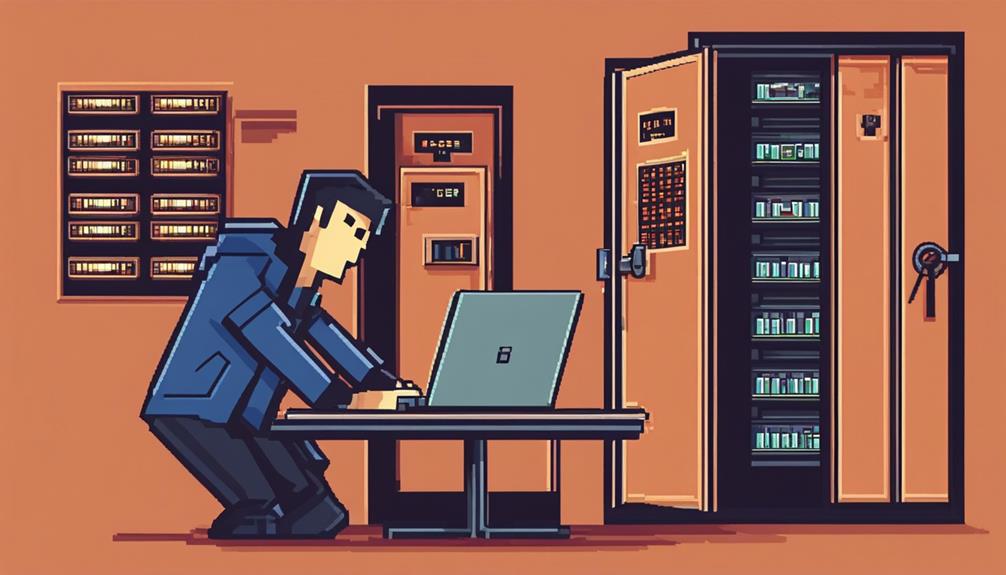Telegram prioritizes user security by implementing robust security features such as end-to-end encryption in Secret Chats, self-destructing messages, and key verification. The MTProto protocol adds an extra layer of protection against unauthorized access. By not storing messages on their servers, Telegram guarantees heightened privacy for its users. Additional measures like two-factor authentication and selective message deletion further bolster security. To enhance safety, users can adjust privacy settings and refrain from sharing sensitive information in public chats. Proactive cyber threat measures, including strong passwords and regular privacy setting reviews, play a vital role in safeguarding users. Explore further for detailed insights into Telegram's security features.
Key Takeaways
- Telegram offers end-to-end encryption and secure communication channels.
- Utilizes MTProto protocol for robust data security.
- Self-destructing messages feature prevents unauthorized access.
- Two-factor authentication adds an extra layer of protection.
- Regularly updating privacy settings aids in safeguarding against hackers.
Telegram Security Features
One significant aspect of Telegram's security measures is its encryption protocols and privacy-enhancing features, which establish a strong foundation for user data protection.
The platform's security features include end-to-end encryption in Secret Chats, ensuring that only the sender and recipient can access the messages. By utilizing the MTProto protocol, Telegram secures user data during transmission, making it challenging for unauthorized parties to intercept or decipher the information.
Additionally, the self-destructing message feature in Secret Chats enhances privacy by automatically removing messages after a specified time, minimizing the risk of data exposure. Noteworthy, Telegram does not store messages from Secret Chats on its servers, further enhancing security and confidentiality.
Users can also verify encryption keys to confirm the authenticity of their communications, adding an extra layer of protection against potential threats. Overall, Telegram's emphasis on encryption, Secret Chats, and privacy features underscores its commitment to safeguarding user data and maintaining a secure messaging environment.
Message Encryption on Telegram
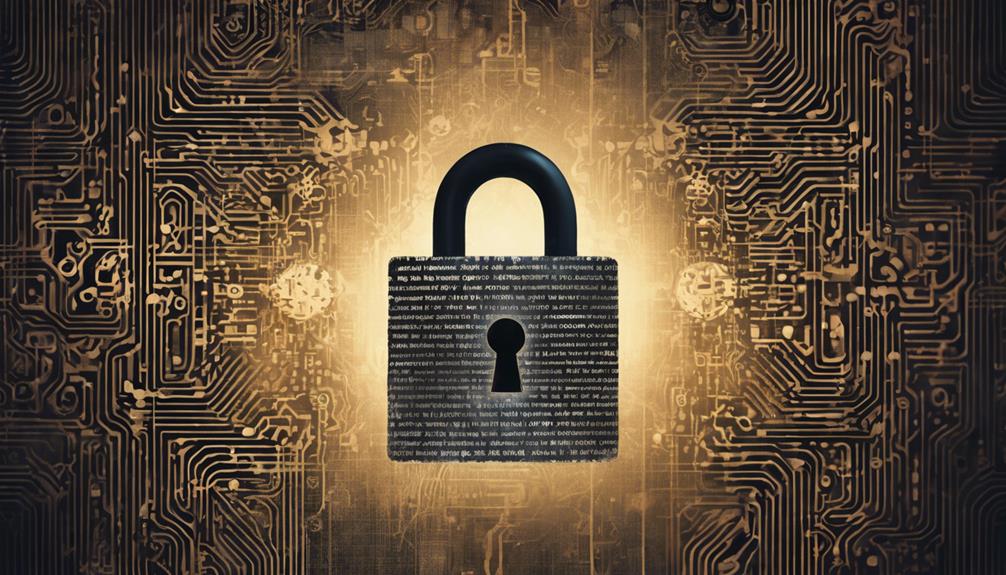
Telegram provides robust message encryption through its end-to-end encryption feature in Secret Chats, ensuring secure communication channels.
Messages exchanged in Secret Chats are not stored on Telegram servers, guaranteeing heightened privacy protection for users.
Furthermore, the full encryption provided in Secret Chats prevents unauthorized access, enhancing the security of transmitted messages.
End-To-End Encryption Explained
End-to-end encryption in Telegram, specifically implemented in Secret Chats, guarantees secure communication by providing client-client encryption and self-destructing messages. Secret Chats offer an extra layer of security by ensuring that messages are not stored on Telegram servers, thereby reducing the risk of data breaches.
Telegram employs the MTProto encryption protocol for securing data in cloud storage, enhancing the protection of user information. Users have the flexibility to switch between Cloud and Secret Chats based on their desired level of encryption, allowing for tailored security measures depending on the sensitivity of the communication.
While Telegram does not default to end-to-end encryption like Signal, the availability of Secret Chats demonstrates a commitment to offering users a secure messaging option for sensitive conversations. By utilizing client-client encryption and self-destructing messages, Telegram's Secret Chats provide a secure environment for users seeking enhanced privacy and confidentiality in their communications.
Security of Messages
The security of messages on Telegram is a critical aspect that determines the confidentiality and privacy of user communications. Telegram provides end-to-end encryption specifically in its Secret Chats feature, guaranteeing that messages are fully secure.
Unlike regular chats, messages in Secret Chats are not stored on Telegram servers, enhancing the privacy of users. Additionally, users have the option to send self-destructing messages in Secret Chats, adding an extra layer of security by ensuring that messages disappear after a specified time.
It is important to note that Telegram's default chats do not offer end-to-end encryption, a key difference from platforms like Signal or WhatsApp. With encryption implemented in Secret Chats, only the sender and receiver have access to the messages, making it highly secure and private.
This feature ensures that the content of the messages remains confidential and protected from unauthorized access.
Privacy Protection Measures
With a focus on safeguarding user communications, Telegram implements robust encryption measures to guarantee the privacy and security of messages exchanged within its platform. The platform offers end-to-end encryption in Secret Chats, ensuring that only the sender and recipient can access the message content. These messages are not stored on Telegram servers, further enhancing privacy protection. Telegram utilizes the MTProto encryption protocol to secure cloud storage, adding an extra layer of security for user data. Additionally, users have the option to send self-destructing messages in Secret Chats, which automatically disappear after a set time, providing an additional level of privacy. Compared to standard chats on Telegram, encryption in Secret Chats offers a higher level of security, making it a preferred option for users seeking enhanced privacy protection.
| Privacy Protection Measures | |
|---|---|
| End-to-End Encryption | Secure Messaging |
| Self-Destructing Messages | Increased Privacy |
| Telegram Servers | No Message Storage |
| MTProto Encryption Protocol | Cloud Security |
| Enhanced Security | Secret Chats |
Risks of Data Breaches

Data breaches pose a significant threat to the security of user data on Telegram's servers, highlighting the platform's vulnerability to cyber attacks.
To understand the risks associated with data breaches on Telegram, consider the following:
- Personal Data Exposure:
Hackers targeting Telegram servers can access a range of personal data, including usernames, phone numbers, contacts, and even device details, putting users at risk of privacy violations.
- Potential Privacy Violations:
The storage of sensitive information on Telegram servers increases the likelihood of privacy violations if these data are breached, impacting user confidentiality and trust in the platform.
- Cyber Attack Vulnerability:
The risk of data breaches underscores the platform's susceptibility to cyber attacks, emphasizing the need for robust security measures to protect user information effectively.
- Importance of Security Measures:
Implementing stringent security protocols is vital to safeguarding user data from potential cyber threats and ensuring the confidentiality and integrity of information stored on Telegram servers.
Utilizing Secret Chats
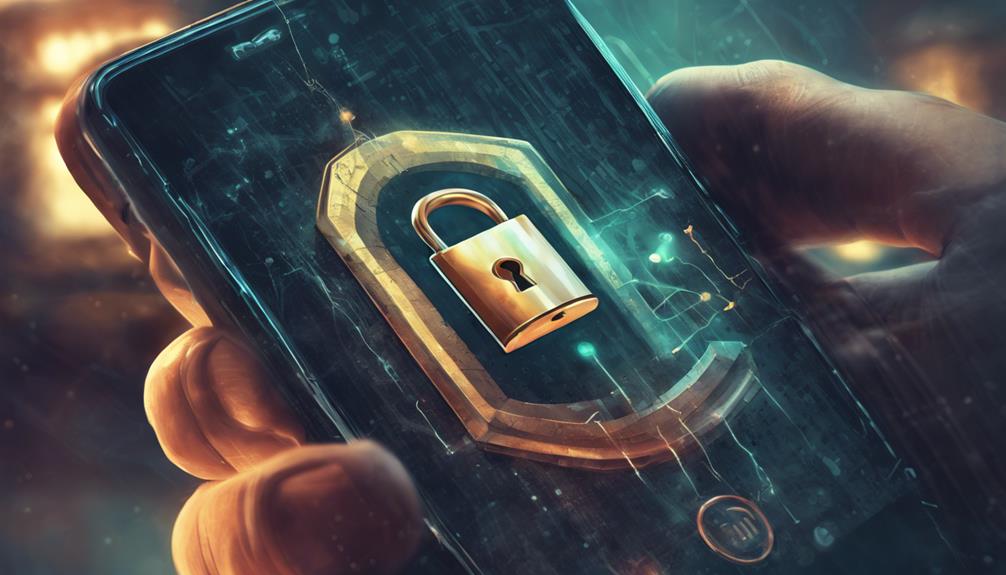
Utilizing Telegram's secret chats provides users with a secure means of communication through end-to-end encryption.
These chats do not store messages on Telegram servers, ensuring a higher level of privacy for users.
Additionally, the option for self-destructing messages adds an extra layer of confidentiality, safeguarding sensitive information from potential breaches.
Encrypted Communication Features
Secret chats on Telegram offer robust encrypted communication features, ensuring end-to-end security and privacy for users. To enhance the protection of sensitive information, Telegram implements various security measures in secret chats:
- End-to-end encryption: All messages sent and received in secret chats are encrypted from the sender's device to the recipient's device, preventing unauthorized access.
- Self-destructing messages: Users have the option to set a timer for messages to self-destruct after a specified period, adding an extra layer of confidentiality.
- Client-client encryption: Secret chats use client-client encryption, meaning the encryption keys are stored on the devices involved in the communication, further securing the messages.
- Prevention of unauthorized sharing: Telegram disables message forwarding in secret chats, reducing the risk of messages being shared with unintended recipients.
Self-Destructing Messages Option
Within Telegram's secure communication environment, users can leverage the feature of self-destructing messages to enhance the confidentiality of their conversations. Through the use of Secret Chats, individuals can send messages that automatically disappear after a specified period, adding an extra layer of privacy and security to their sensitive discussions.
This functionality allows users to have control over the visibility of their messages, ensuring that the content vanishes and cannot be saved or forwarded by the recipient. By employing self-destructing messages in Secret Chats, Telegram users can rest assured that any confidential information shared remains ephemeral and is not stored on Telegram servers.
This feature not only protects the privacy of users but also contributes to maintaining the security of their communications, making it a valuable tool for those seeking heightened confidentiality in their online interactions within the Telegram platform.
Adjusting Privacy Settings
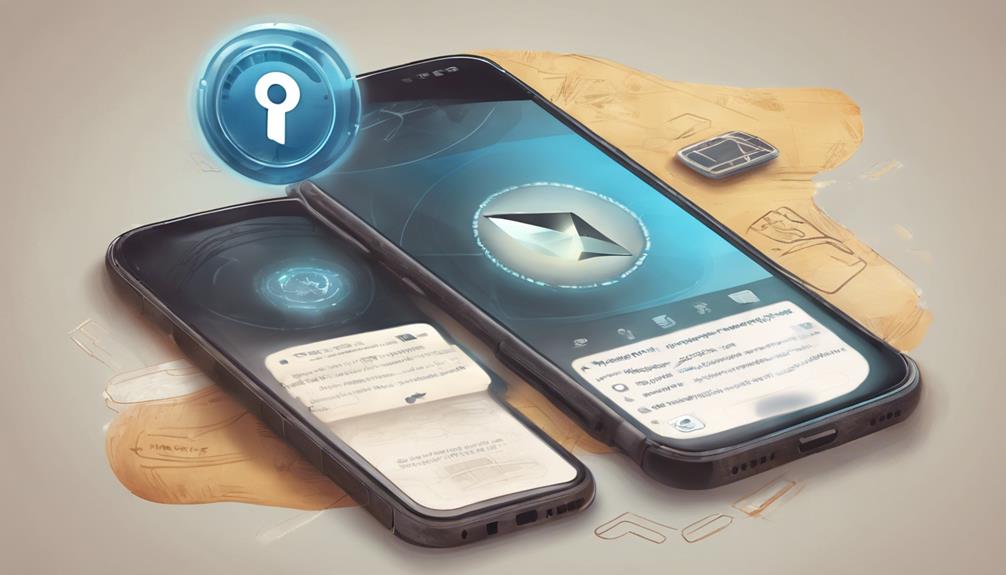
Users can tailor their privacy settings on Telegram to control the visibility of their personal information and interactions on the platform. By customizing these settings, individuals can safeguard their data and guarantee a more secure experience.
Here are four key aspects of privacy settings on Telegram:
- Control over Phone Number: Users can choose who can view their phone number, limiting access to only contacts or concealing it entirely from non-contacts.
- Management of Profile Picture: Telegram allows users to adjust settings to control who can view their profile picture, offering a layer of privacy for this visual identification.
- Regulation of Last Seen Status: Users can decide who can see their last seen status, enabling them to manage their online presence and availability discreetly.
- Restriction on Group or Channels Addition: Privacy settings can be customized to specify who can add users to groups or channels, giving individuals more control over their participation on the platform.
Two-Factor Authentication on Telegram
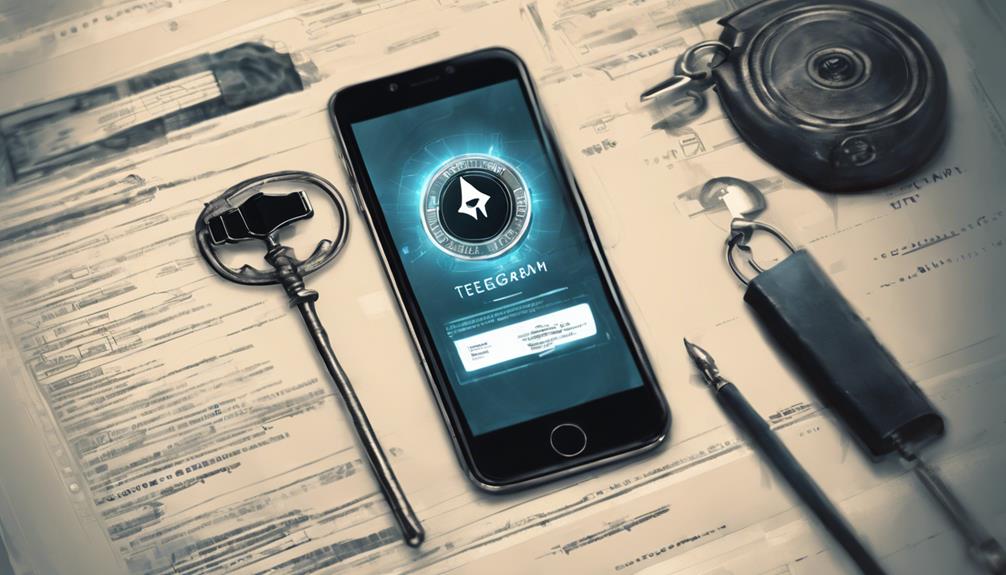
To enhance the security of their accounts, Telegram users can implement two-factor authentication (2FA) as an additional safeguard against unauthorized access. This security layer requires users to enter a verification code, usually sent to their mobile device, in addition to their password when logging in.
By enabling 2FA on their Telegram account, users can greatly reduce the risk of unauthorized individuals gaining access, even if their password is compromised. Setting up two-factor authentication is a straightforward process within the Telegram app; users can navigate to the settings and follow the prompts to activate this feature.
This additional step of requiring a verification code from a trusted device during login adds an extra level of protection to safeguard the security and privacy of their account information. By utilizing two-factor authentication, Telegram users can strengthen their accounts against potential security breaches effectively.
Deleting Sensitive Messages
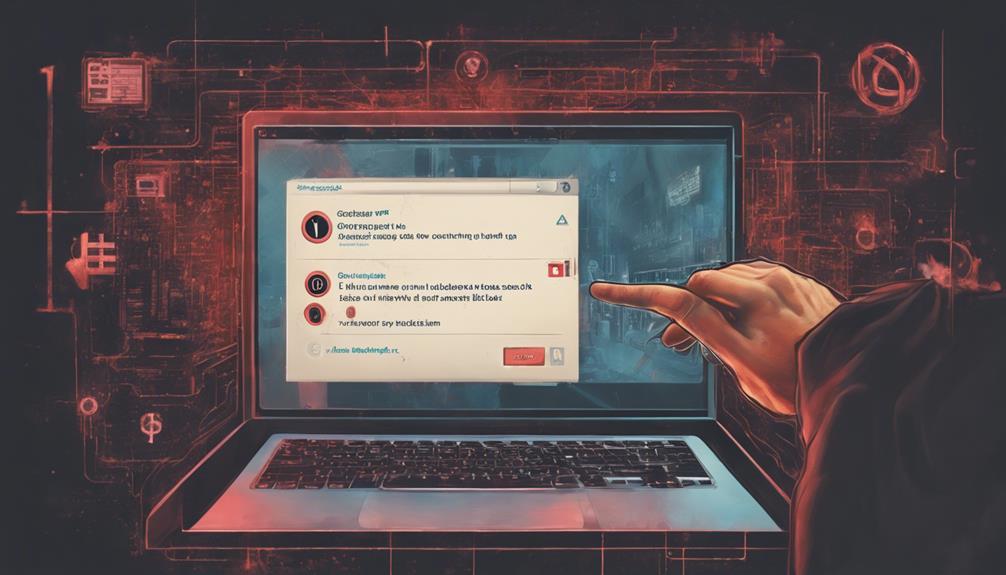
Telegram's functionality includes the capability for users to securely remove sensitive messages from their conversations. This feature allows users to maintain their privacy and confidentiality when sharing information on the platform.
Here are some key points to take into account regarding deleting sensitive messages in Telegram:
- Complete Removal: Deleted messages in Telegram are erased from both the sender's and receiver's ends, ensuring that the information is completely eliminated from the conversation.
- Selective Deletion: Users have the option to delete messages for themselves or for everyone in the chat, giving them control over the visibility of the shared content.
- Privacy Protection: Deleting sensitive messages in Telegram helps users safeguard their personal information and maintain a level of privacy within their conversations.
- Confidentiality Control: This feature empowers users to manage their communication effectively, allowing them to protect confidential details and control the content shared within the platform.
Sharing Personal Information Safely

When considering the security of personal information on messaging platforms like Telegram, it is important to adopt cautious practices to safeguard sensitive data.
It is vital to refrain from sharing personal details such as phone numbers and addresses in public chats on Telegram. Additionally, avoid disclosing sensitive information like financial data or passwords to guarantee your security.
Utilizing privacy settings within the app can help control who has access to your personal information, enhancing your overall privacy and security. Consider using a pseudonym or username instead of your real name to protect your identity further.
Regularly reviewing and updating your privacy settings is essential to ensure that your personal information remains secure on Telegram.
Proactive Cyber Threat Measures
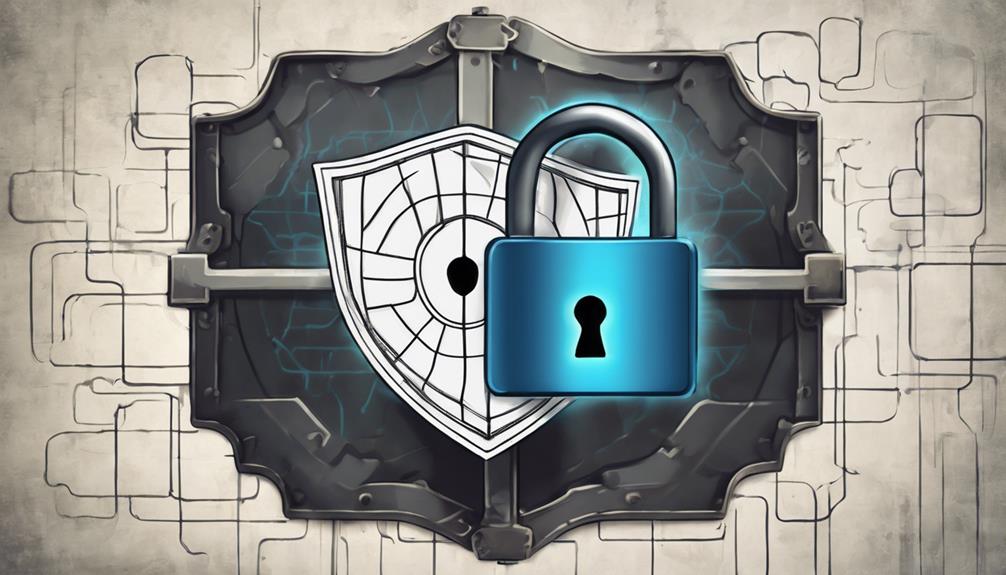
- Enable Two-Step Verification: Implementing two-step verification on Telegram adds an extra layer of security to your account, making it harder for hackers to gain unauthorized access.
- Regularly Review Privacy Settings: Taking your privacy seriously means regularly reviewing and adjusting privacy settings on Telegram to control who can access your personal information.
- Beware of Phishing Attempts: Being cautious of phishing attempts and suspicious messages is essential to prevent falling victim to hacking schemes that could compromise your privacy and security.
- Use Strong, Unique Passwords: Using strong, unique passwords for your Telegram account is vital to deter hackers from gaining access through password guessing or brute force attacks.
Frequently Asked Questions
Can You Get Hacked Through Telegram?
Yes, users can be hacked through Telegram via phishing, malware, and scams targeting accounts. Vigilance against unsolicited messages, suspicious links, and safeguarding personal information is essential to thwart hacking attempts. Implementing security measures like passcodes and two-factor authentication is vital.
Is There Any Danger Using Telegram?
While Telegram boasts encryption and security measures, dangers lurk in the shadows. Threats like phishing, malware, and social engineering can compromise user accounts. Vigilance is key to safely traversing the digital landscape.
Can People Steal Your Information From Telegram?
While Telegram offers encryption features, users should exercise caution as hackers can potentially steal personal information from the platform. Storing user data and previous breaches highlight the risk of cyber attacks. Vigilance is essential.
How Do I Know a Scammer on Telegram?
Using Telegram safely requires vigilance. Watch for unsolicited messages seeking personal or financial details. Exercise caution with links and attachments, as they may harbor malware. Beware of imposters posing as familiar contacts or organizations. Alert Telegram of any suspicious activity promptly.
Conclusion
To sum up, while no system can claim absolute safety from hackers, Telegram offers robust security features such as message encryption, secret chats, and two-factor authentication to protect user data.
By adjusting privacy settings, deleting sensitive messages, and sharing personal information cautiously, users can mitigate the risks of data breaches.
It is essential for individuals to take proactive measures to safeguard their online presence, as cybersecurity threats continue to evolve at an alarming rate.
Remember, staying vigilant is key in today's digital landscape.




